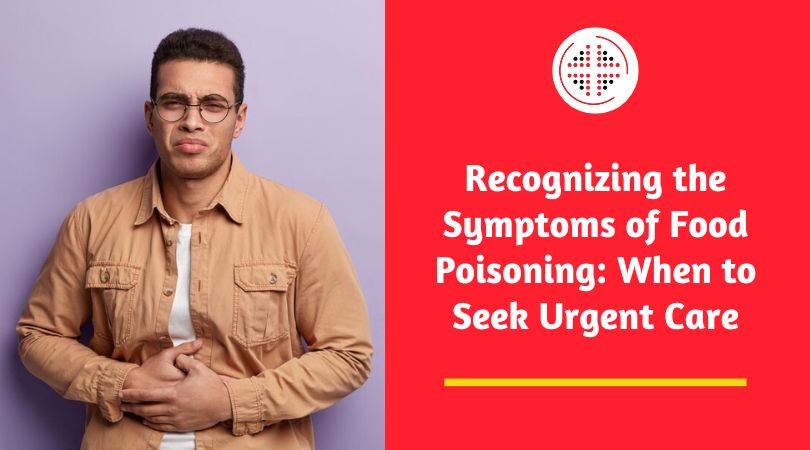


Are you experiencing abdominal pain and cramps, or do you recall consuming food that may have been contaminated? Well, what you experience may be due to food poisoning. It is a foodborne illness that may develop due to something that you may have eaten or drank. Symptoms of food poisoning may resemble those of stomach flu. However, it is always caused by eating infected food, while the latter is due to bacterial or viral infection. For some people, symptoms of food poisoning may resolve in a few days with proper rest and adequate hydration, while others may require medical intervention.
Read on to learn about food poisoning, including its types, symptoms, causes, risk factors, and treatment options. We'll also discuss when to seek urgent care, what to expect, and how MI Express Urgent Care can assist you.
Food poisoning, or foodborne illness, is an ailment caused by consuming contaminated food or beverages. Contaminants can include bacteria, viruses, fungi, or parasites that secrete toxic by-products in the food, which can irritate and infect your gut lining.
It is a common medical condition that most people suffer from. According to the Centers for Disease Control and Prevention (CDC), around 48 million people in the United States suffer from some form of food poisoning each year.
While it is typically not a life-threatening medical condition, prompt detection and management are essential to prevent complications.
The type of food poisoning depends on the exact cause of food contamination. These include:
The symptoms of food poisoning may vary based on the nature of the microorganisms causing the condition and your immune system. Some common signs of food poisoning include:
Food poisoning is often caused by eating and drinking contaminated food, water, or other beverages. Contamination occurs when food is not:
If you have a poor or compromised immune system, you may be more likely to suffer from food poisoning. Certain factors can increase your risk, including:
Food poisoning treatment usually depends on the severity of the condition. Mild cases can be easily managed at home through the following options:
If the above options do not provide relief and help manage the symptoms of food poisoning, seek medical help. Consult a doctor who will determine the type of pathogen responsible for the illness and prescribe appropriate drugs, such as antibiotics, antivirals, or antifungal medications.
While most often, the symptoms of food poisoning can be resolved by proper management at home, severe forms of food poisoning require urgent care. Seek immediate care if you experience any of the following severe signs of food poisoning:
Here is what you can expect while visiting a healthcare professional at an urgent care center:
If you experience a sudden onset of food poisoning symptoms, seek immediate medical care at MI Express Urgent Care. With experienced physicians and nurses, MI Express Urgent Care is a one-stop solution to all your health problems. We offer quick and hassle-free medical care services for the well-being of our patients. Our qualified and experienced healthcare professionals are well-equipped with leading-edge technology and the latest medical facilities.
Contact us today to get the best possible treatment for your illnesses so that you can lead a happy and healthy life.